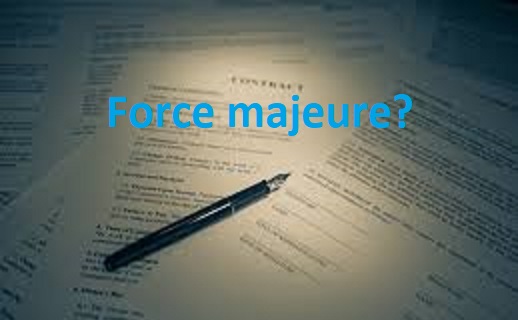
Our local lawyer in Ukraine and Belarus is sharing some tips on options to invoke force majeure for non-performance of a contract.
Many businesses are increasingly interested in recourse to force-majeure as a means to postpone obligations under a contract as well as to avoid penalties. In Ukraine and Belarus the possibilities to invoke force majeure are different.
In Belarussian law there is no actual term “force majeure”. The Civil Code in clause 3 Art. 372 speaks about “circumstances of insuperable force”. However, there is no list of which circumstances may be considered as such. Ukrainian law uses force majeure as a synonym for circumstances of insuperable force. Also, it is more specific. In clause 2 Art. 14 of the Law on Chambers of Trade and Commerce in Ukraine there is a non-exclusive list of circumstances of insuperable force, in particular: “long-term transport disruptions due to decisions and acts by state authorities” as well as “epidemics”.
Whatever the terms are, both laws stress the same features of force-majeure. The circumstances shall be:
– unavertable, i.e. having exercised due diligence and care it was impossible to avert the consequences of extraordinary events;
–extraordinary, i.e. the circumstances occurred all of a sudden; they could not be foreseen and are unique under given circumstances.
Thus, we need to underline that due to a certain ambiguity as to definition and list of force-majeure circumstances, their influence on execution of a particular contract shall be judged on a case-by-case basis.
Having said that, here are some useful tips if you consider recurring to force-majeure due to coronavirus:
1. The coronavirus and the epidemic caused by it are not circumstances of insuperable force (force-majeure) by themselves. However, restrictive and other measures by state authorities aimed at preventing virus transmission and its consequences adopted after the conclusion of a contract may be considered force-majeure.
Thus, if a contract was concluded just recently, there is no use to refer to force-majeure: coronavirus and restrictive governmental measures are a reality and not anything extraordinary and unavoidable.
2. A reference to force-majeure to get exemption from liability under a contract is valid only if such circumstances led to absolute inability to fulfill duties under the contract. The referring parties shall first do everything to fulfill a contract.
For instance, if a seller invokes force-majeure due to inability to get materials from his supplier abroad because of closed borders, it will not lead to automatic exemption from liability for non-fulfillment of the contract. The seller shall try to find an alternative supplier, even if the materials turn out to be more expensive. The Plenum of the Supreme Economic Court of Belarus has ruled that non-performance by the debtor’s partners, absence of the goods necessary for fulfilling of the contract, absence of funds of the Debtor are not considered circumstances of insuperable force. The Ukrainian practice is the same.
3. Unprofitability of the contract caused by the measures taken against coronavirus (i.e. a need to find a more expensive supplier, etc.) is not a force-majeure clause. We believe that in such a case a party may instead demand termination or alteration of the contract due to material change in circumstances. However, court practice shows that it rarely happens in Belarus and in Ukraine.
4. Force-majeure is confirmed by issuance of a certificate by a Chamber of Trade and Commerce of a corresponding state. But, where can you apply for a force-majeure certificate? Who can apply?
You need to file an application to the chamber of the country that imposed the measures leading to inability to fulfill a contract. In case of Ukraine, it is possible to get a force-majeure certificate due to acts of the Ukrainian government (termination of movement of people, postponement of flights, etc.) However, there are limited chances to get it from the Belarusian Chamber of Trade and Commerce, as Belarus has introduced almost no restrictive measures due to coronavirus. Applications can also be introduced by foreign companies.
5. It must be remembered that a reference to force-majeure does not exempt a party from its obligations under a contract. It only provides for temporary relief of liability for the period of duration of such circumstances. Thereafter, the contractual obligations still need to be fulfilled – except if the contract provides for an option of termination. In all other cases, you may end up in court trying to escape from liability due to a material change in circumstances.
6. As claiming force-majeure is not as easy as it seems, we recommend that you take measures while drafting a contract: you should insert reservation clauses allowing for alteration or termination of the contract without a need to go to court.







